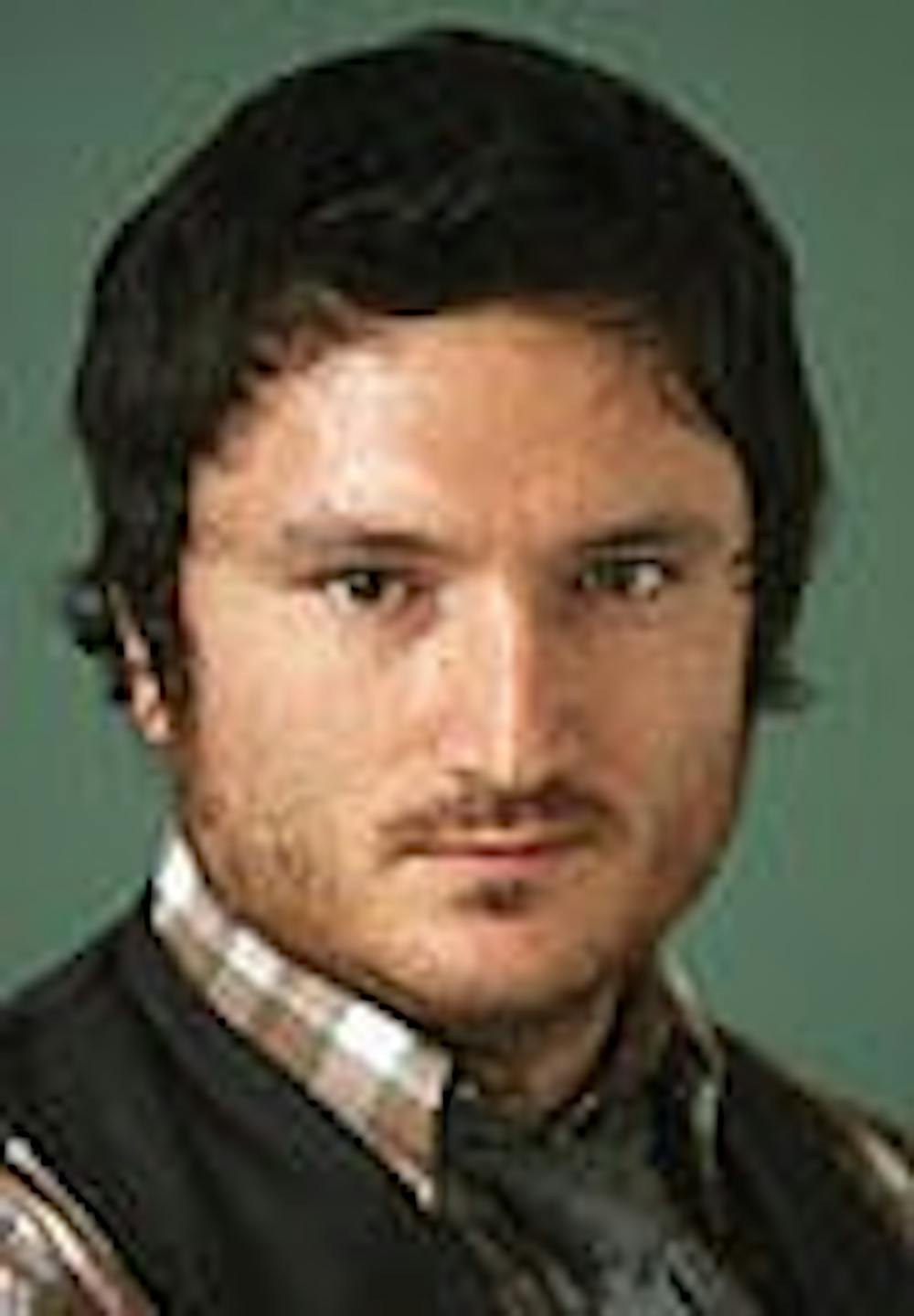Jesse James DeConto, a UNC alumnus, uses his experiences reporting for papers and magazines across the U.S. to fuel his songwriting. DeConto is the lead singer and bassist for Durham-based band The Pinkerton Raid. The band just released its first album and is playing an album release show Saturday at the Casbah in Durham. Arts Editor Alex Dixon talked to DeConto about reporting on a tornado, sharing his name with an outlaw, and his journalistic style of songwriting.
Daily Tar Heel: How did you decide on The Pinkerton Raid as a band name?
Jesse James DeConto: Well, my mom named me Jesse James and I’ve had a tempestuous relationship with that. The weird part is she didn’t even think about the outlaw when she named me; she just liked the way the names sounded together. The connection between Jesse James and the name Pinkerton Raid is that the Pinkertons were violent mercenary police that were always chasing the James’ gang around. The Pinkerton Raid is when they firebombed the James’ ranch in Missouri. They ended up killing one of Frank and Jesse’s little brothers. The name was compelling to me because I liked the sound of the name linguistically, but when I think about that story I wonder who the real hero is. No question, we resonate with Jesse James. I never really knew why. I guess we like outlaws. But there’s this myth about Jesse James, kind of like Robin Hood. He was fighting the man. Sometimes in my own life I don’t know who’s the good guy and who’s the bad guy. Sometimes I’m the bad guy and I don’t want to admit it.
*DTH: *What has been your most memorable experience as a reporter?
*JJD: *When I was at my first job at the Xenia (Ohio) Daily Gazette, a tornado hit. About 30 years earlier, a tornado hit the same town and it made national news because a few people died, so it’s always in the memory of Xenia. I drove around with the police, seeing things like the entire top floors of houses in the front yard. The most powerful thing I saw or heard that night was when I went into this elderly couple’s house. They talked about hearing this sound like a rushing train and they recognized it from the tornado 30 years before. They were out on their porch when they heard it and the husband grabbed his wife and pulled her towards the basement. The storm knocked the porch off the house and he could feel her being pulled out of the door as they were going into the basement. To hear about this human resilience and be able to bear witness to it and write about it was really a privilege.
*DTH: *How have events in your reporting experience influenced your songwriting?
JJD: You hope that it helps you pay attention to details and helps you tell a story. I think a lot of the songs are journalistic. There’s a song called “Santa Rosa” and it’s just telling a story about an experience of being panhandled a couple of times in Santa Rosa, Calif., and being struck by how you can have this really beautiful place with all this wealth and see that people are still hungry and don’t have a place to live. It was a metaphor for something bigger. I don’t like songs that try to write about some big theme because they end up sounding preachy. So when I see a real specific experience, that’s what I try to write about and I hope people can engage it in a bigger way, but I want the story to be intact. So it’s like a mix of journalism but there’s something at stake for me personally. In a way, I try to turn a journalistic lens on my own experiences.
DTH: You said you were inspired by folk rock from the 1960s and 1970s. Is this reflected in The Pinkerton Raid’s music?
JJD: Definitely. I try to build the songs around vocal harmonies. I believe that the two- to four-minute pop song is still something that resonates with people. The way that they wrote pop hooks in that era is something I really try to emulate. I’m not a big jam band fan. The musicians are getting lost in the music. That’s fun as a player, but I don’t know how fun it is for listeners. I think we’ve learned some things about song structure that grabs people’s attention and keeps it. I don’t know how well we’re able to do that, but that’s what I’m trying to do.




